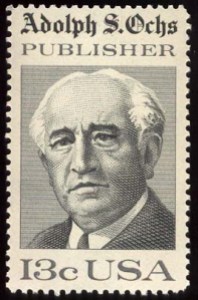
Please see this follow-up item.
If you were part of media and political circles in the early 1990s, then you were certainly aware of sensational accusations by Gary Sick, a top national security official in the Carter administration, that Ronald Reagan’s campaign had sabotaged efforts to bring the Iranian hostage crisis to a close during the waning weeks of the 1980 presidential campaign.
Jimmy Carter suffered a landslide re-election defeat at Reagan’s hands — an outcome that might have been different if he’d been able to celebrate the return of the 52 American hostages. Indeed, it was the prospect of such an “October surprise,” Sick argued, that led Reagan operatives to intervene with the Iranians and promise them weapons from Israel if they would agree not to release the hostages until Reagan was in office.
Sick’s charges could not be proven. But, on Saturday, The New York Times published a startling account (free link) about Ben Barnes, a former aide to the late Texas Gov. John Connally, who says that he and Connally were directly involved in working to delay the release of the hostages. Connally, a Democrat-turned-Republican who had served as treasury secretary under Richard Nixon, had run unsuccessfully for president himself in 1980 and was hoping for a plum appointment from Reagan. The Times’ Peter Baker writes of Barnes:
Mr. Connally, he said, took him to one Middle Eastern capital after another that summer, meeting with a host of regional leaders to deliver a blunt message to be passed to Iran: Don’t release the hostages before the election. Mr. Reagan will win and give you a better deal.
Why now? Barnes is 84; Carter, who’s 98, has entered hospice care. In Barnes’ telling, he was suffering from pangs of conscience. “History needs to know that this happened,” Barnes told Baker. “I think it’s so significant and I guess knowing that the end is near for President Carter put it on my mind more and more and more. I just feel like we’ve got to get it down some way.”
Now, my apologies for leading with the background, which is something I always tell my students not to do. Buried deep within Baker’s story is a massive media scandal. Get a load of this:
Mr. Barnes identified four living people he said he had confided in over the years: Mark K. Updegrove, president of the L.B.J. Foundation; Tom Johnson, a former aide to Lyndon Johnson (no relation) who later became publisher of the Los Angeles Times and president of CNN; Larry Temple, a former aide to Mr. Connally and Lyndon Johnson; and H.W. Brands, a University of Texas historian.
All four of them confirmed in recent days that Mr. Barnes shared the story with them years ago. “As far as I know, Ben never has lied to me,” Tom Johnson said, a sentiment the others echoed. Mr. Brands included three paragraphs about Mr. Barnes’s recollections in a 2015 biography of Mr. Reagan, but the account generated little public notice at the time.
Yes — Tom Johnson, a former publisher of the Los Angeles Times and president of CNN, has known about Barnes’ story for years, believes it and sat on it. This is an unconscionable act on Johnson’s part. Barnes’ story can’t be entirely verified, but it tracks with what we already know and is the closest thing we’ve had to proof that the Reagan campaign deliberately prolonged the hostages’ agony for political gain. I mean, this is really shocking stuff.
It also fits with a pattern of Republican candidates for president interfering in American foreign policy and cutting deals with our adversaries in order to gain political advantage.
During the 1968 campaign, Nixon’s henchmen secretly threw a wrench into U.S. peace talks aimed at ending the Vietnam War and also took a half-million-dollar bribe from the right-wing junta then running Greece. As we all know, Donald Trump was happy to benefit from a Russian influence campaign in 2016, and Trump campaign manager Paul Manafort had ties to Russian intelligence. Trump’s 2020 campaign featured his threat to withhold weapons from Ukraine unless officials there announced they were investigating Hunter Biden — an act that led to Trump’s first impeachment.
Barnes has filled in an important missing piece of history and cast serious doubts on the legitimacy of Reagan’s presidency. Reagan kicked off more than 40 years of right-wing economics that have left us with declining wages, widening income inequality and the toxic belief that private interests should come before the public good. It’s disheartening to receive confirmation that it never should have happened.








